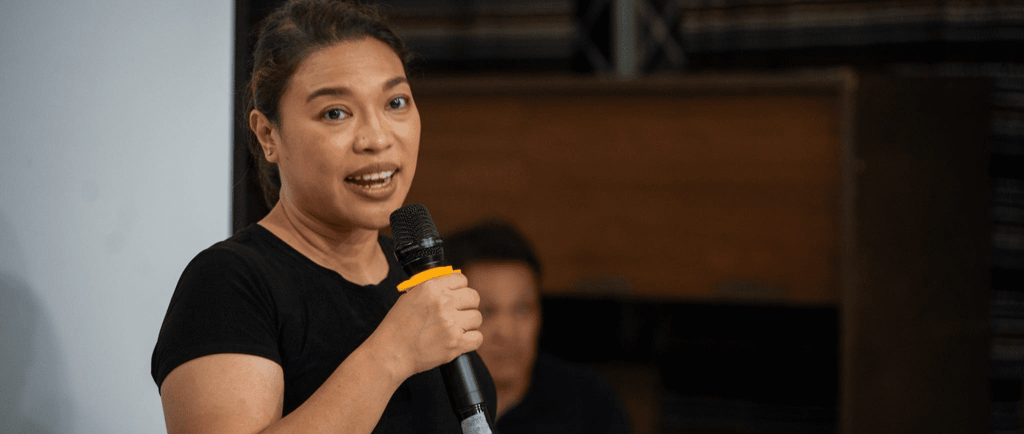When Lawyers Stand for Justice: Why Atty. Kristina Conti Wants Us to Rethink What Lawyers Actually Do
This article is written in support of Atty. Kristina Conti’s call for the public to better understand what lawyers really do and why their work matters.
6 min read


Photo Credit: Charles Edmon Perez / Pinoy Weekly
There’s a common reaction when people hear about lawyers defending someone accused of a terrible crime. The question comes up again and again: “How can you defend someone like that?” It’s a question rooted in misunderstanding, and human rights lawyer Kristina Conti believes it’s time we all got educated about what lawyers really do and who they actually serve (Inquirer).
Conti, who has spent more than a decade representing victims of drug war killings and fighting state abuse, recently called for better public understanding of the true role of lawyers. Her message is simple but powerful: the legal profession must always serve justice and integrity, not just clients with money or popular causes (NUPL).
The Big Misunderstanding
Here’s what most people get wrong: they think lawyers are on the same side as their clients, morally speaking. They imagine that defending someone accused of a crime means you approve of them, or that representing drug war victims means you share their politics (Rule of Law, Criminal Law Group).
Nothing could be further from the truth.
When a lawyer defends someone in court, the point is to uphold principles much bigger than any single case: everyone deserves a fair trial, the government must properly prove any charge, and due process protects all. These ideas are the foundations of democracy itself (Rule of Law).
Think of it this way: if lawyers only defended people they personally believed were innocent, then lawyers would essentially be acting as judges before any trial happened. That’s not how justice works. The Constitution guarantees everyone the presumption of innocence until proven guilty, and lawyers make that guarantee real (Criminal Law Group).
Why Everyone Needs a Lawyer—Guilty or Not
Conti grew up watching her mother work as a public attorney, getting paid in bananas, fish, and trinkets because her clients were poor (Inquirer). From an early age, she learned that being a lawyer wasn’t glamorous. It meant hard work, intelligence, and resourcefulness in service of people who had nothing else.
That experience shaped her understanding of what lawyers should be: defenders of the rule of law for everyone, especially those the system might otherwise crush.
Even people who actually committed crimes need lawyers. Why? Because the punishment must fit the crime, and only a lawyer can argue for appropriate sentencing while explaining the full context of someone’s life—their poverty, mental health struggles, or the circumstances that led them there (Ask Lawyers). Without lawyers doing this work, the system could just steamroll people based on whatever the prosecutor demanded.
In 2019, a young jeepney driver in Manila was accused of theft after taking home a passenger’s lost bag. A public defender found evidence that the driver intended to return the bag and had even posted online looking for the owner. Instead of jail, the court allowed the driver to go free with a warning—because the lawyer dug for the full story and pressed for fairness. This is the kind of work many lawyers do, far from the media glare.
People's Lawyers vs. Lawyers for the Powerful
Conti identifies as a “people’s lawyer,” which is different from your typical attorney. People’s lawyers, or public interest lawyers, represent marginalized groups—the poor, workers, farmers, activists, and others caught in systemic power imbalances (Law Society UK).
She didn’t stumble into this work. Conti started as a science student, then became a journalist at BusinessWorld, but a turning point came when a dear friend disappeared while doing community work. The government’s inaction on cases of missing activists pushed her to law school in 2008. She wanted to find her friend and help other "desaparecidos" (disappeared persons) (Bulatlat).
After passing the bar in 2014, she joined the National Union of Peoples’ Lawyers (NUPL), where she took on politically explosive cases: defending students falsely accused of weapons possession, pursuing justice for activists who disappeared, and representing victims of Rodrigo Duterte’s drug war (Inquirer).
When thousands of mostly poor Filipinos were killed in the drug war, Conti knew someone had to take these cases. Many lawyers wouldn’t touch them. They were too dangerous, too politically charged, too unpopular. She did it anyway: “I decided to take them fully knowing that no one else would,” she said (Bulatlat).
Justice Isn’t Just About Winning
One of Conti’s most important messages to new lawyers is this: “Remember, not everything legal is just.” Just because you can win a case through technicalities doesn’t mean you should, and it definitely doesn’t mean justice was served (CSU).
She warns young lawyers about the seductive dangers of power and winning at all costs. Lawyering should focus on fairness and the protection of rights, not just cleverness or technical wins in court (CSU). Lawyers represent clients but also serve as officers of the court—they must ensure proceedings are fair, that evidence is legitimate, and that the rule of law actually works (Rule of Law).
When Conti represented families of drug war victims before the International Criminal Court (ICC), she wasn’t just seeking punishment for Duterte. She was trying to push back against the culture of impunity that lets the powerful commit crimes without consequence. She was fighting for the principle that justice isn’t just for those who can afford it (Al Jazeera).
The Real Threats to Justice
Conti knows firsthand what happens when lawyers do their jobs properly in politically sensitive cases. Since Duterte’s arrest by the ICC in March 2025, she has faced an escalating campaign of red-tagging (being labeled a communist or terrorist), harassment, and threats against her and her family (Lawyers for Lawyers).
Troll armies have called her slurs, posted her photos with threatening messages, and tried to discredit her work. International organizations—including the Law Society of England and Wales, Lawyers for Lawyers, and the International Bar Association—have condemned these attacks and called on Philippine authorities to protect her (Law Society UK).
Why does this matter for understanding the role of lawyers? Because when lawyers are threatened for representing unpopular clients or challenging power, the entire justice system breaks down. If lawyers can’t do their work without fear, then ordinary people lose their only protection against abuse (Lawyers for Lawyers).
What Lawyers Really Owe Society
The Philippine Code of Professional Responsibility and Accountability says lawyers must uphold the Constitution, obey laws, promote respect for legal processes, and safeguard human rights (Law Library). Lawyers in government service have an even higher duty, because public office is a public trust.
But Conti’s vision goes further. She believes lawyers must educate the public that “lawyers really should work for the good of all.” It’s a noble profession—corporate lawyers, public interest lawyers, and government lawyers are all bound by the same principles of integrity (Law Society UK).
The problem is, legal services remain out of reach for most Filipinos. Only 20 percent can access legal help, and most get advice from friends or family, not lawyers (Trust.org). The poor face barriers of cost, distance, and simply not knowing any lawyers. This is why Conti emphasizes: Justice must reach the margins, where it’s most needed.
Side Note: What I find both interesting and intriguing is the silence of the Integrated Bar of the Philippines regarding the harassment Atty. Kristina Conti is experiencing. For an organization that represents the country’s lawyers, its lack of a public statement or defense in this situation stands out. Instead, it was international legal and human rights groups who issued calls for protection and voiced concern over the threats against her.
Defending Rights, Not Crimes
When you see a lawyer defending someone accused of terrible things, understand what’s actually happening. That lawyer isn’t saying the crime was okay. They’re defending the Constitution, due process, and your rights too—even if you never need them (Rule of Law, Criminal Law Group).
As Conti puts it, she’s “a human rights activist who just happens to be a lawyer.” Her tool is the law, but her commitment is to people—especially those on the margins.
In developing countries like the Philippines, lawyers are often seen as corrupt enablers of an unfair system. Some are. But when legal systems are broken, it weakens the rule of law for everyone. That’s why public education matters—and why lawyers like Conti keep pushing for it.
What Can You Do?
Share accurate, fact-checked information on what lawyers actually do
Listen to stories from public interest lawyers and their clients
Support or donate to legal aid organizations
Push for policy reform and better legal services for the marginalized
Justice needs more than punishing the accused. It needs lawyers who fight for fairness, constitutional rights, and equal treatment for all. Atty. Kristina Conti stands in this tradition—her work helps make these ideals real in everyday life.
Contact us
subscribe to morning coffee thoughts today!
inquiry@morningcoffeethoughts.org
© 2024. All rights reserved.
If Morning Coffee Thoughts adds value to your day, you can support it with a monthly subscription.
You can also send your donation via Gcash: 0969 314 4839.
